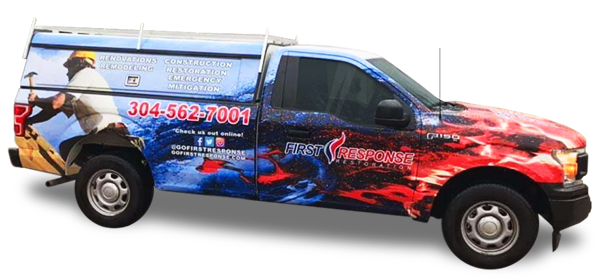Did you know that over 350,000 homes in the United States face fire damage each year? This leads to a big problem: the smell of smoke that stays in your home. This smell can make living uncomfortable and even be bad for your health.
To get rid of the smoke odor, you need to understand smoke and how to fix fire damage. Smoke smell is hard to get rid of because it goes deep into surfaces. So, you’ll need to clean and treat your home carefully. This includes checking for damage, making sure your home is well-ventilated, cleaning everything well, and treating your HVAC system.
Key Takeaways
- Understanding the persistent nature of smoke smell is crucial for effective removal.
- Immediately assessing the extent of smoke damage helps in planning the restoration process.
- Proper ventilation is essential to begin the process of airing out your home.
- Thorough cleaning of household surfaces and items is necessary for eliminating the odor.
- Special attention to HVAC systems and air ducts is required to prevent the spread of smoke particles.
Understanding the Nature of Smoke Smell
Understanding smoke smell is key after a fire-damaged house. Smoke particles stick to surfaces, making the smell last. These particles mix with soot, which has tiny particles and acids like hydrochloric and hydrofluoric acids when plastics burn.
The amount of soot that sticks to surfaces changes with the fire’s materials. Oily soot from plastics is harder to clean than other types. This oily soot also makes odors last longer in things like drywall, furniture, and textiles.
Smoke smell doesn’t go away easily, staying in surfaces deeply. This means cleaning and neutralizing smells is crucial. Knowing this helps us see why effective cleaning is important to fix a smoke-damaged home.
Assessing the Smoke Damage
Checking the smoke damage is the first step in getting rid of the smoke smell. Factors like the type and amount of soot, the damaged area size, humidity, and time since the fire affect the cleanup plan.
Experts look at the smoke damage risk to see how much soot is present. Soot is acidic and can cause corrosion, so quick action is needed. Knowing which items need cleaning or replacing quickly helps prevent more damage.
It’s important to see how deep smoke particles have gone into surfaces and materials. Experts use special methods to find out how deep smoke has penetrated. This helps create a detailed plan for fixing the damage.
Ventilation: Airing Out Your Home
To get rid of smoke smell, start with proper ventilation. This means getting rid of bad air from your home. Here are some ways to do it:
- Remove window screens to let more air in. This makes it easier for fresh air to move around your home.
- Use fans to improve ventilation. Place fans in doorways and windows to bring clean air into different rooms.
- Create positive pressure with an outdoor fan. Set up a strong fan outside a window or door. It pushes fresh air in and takes out the smoky air.
This first step helps with ventilation, but it might not get rid of all the smell. Yet, it’s a key step for deeper cleaning to remove smoke particles. Using air purifiers and positive pressure can make ventilation faster and more effective.
Cleaning Household Surfaces and Items
After you’ve aired out your home, it’s time to deep clean to remove smoke residue. Begin by washing all fabrics like curtains, beddings, and clothes to get rid of smoke particles. A vinegar solution works great for cleaning windows and their treatments, making them smoke-free.
For walls and hard surfaces, mix warm water, vinegar, and dish soap for cleaning. This mix is great for removing soot and odors, leaving things smelling fresh. Don’t forget to clean corners and tight spots where soot often hides.
- Wash all fabrics, including curtains, beddings, and clothing
- Clean windows and window treatments with vinegar-based solutions
- Wipe down walls and solid surfaces with a mix of warm water, vinegar, and dish soap
Cleaning carpets and furniture is key since they trap smoke particles. Sprinkle baking soda on them to soak up the smell. Then, vacuum thoroughly with a HEPA filter vacuum to remove soot and trapped particles.
- Apply baking soda to carpets and upholstered furniture to absorb odors
- Use a HEPA vacuum to capture embedded smoke particles effectively
By following these steps, you’ll greatly improve your home’s air quality after a fire. This ensures a healthier and more pleasant living space.
Cleaning HVAC Systems and Air Ducts
Keeping your HVAC system clean is key to getting rid of smoke smells at home. Any leftover particles in the system can keep bringing back bad odors. Start by changing air filters and cleaning registers to improve air quality.
For a deep clean, consider hiring professionals to work on your air ducts. They use special tools to remove soot and dirt stuck in the duct walls. They also use neutralizing agents to get rid of smoke smells inside the ducts.
In some cases, you might need to seal the ducts from the inside. This traps in any lingering odors. It makes sure the air from your HVAC system is clean and smoke-free, making your home’s air better.
Overall, cleaning your HVAC system and air ducts is crucial for a healthy home. By doing this, you make sure your HVAC doesn’t spread smoke smells. This way, you can breathe in cleaner, fresher air at home.
Conclusion
Dealing with smoke smell after a fire is complex, but we’ve covered a detailed plan. It’s clear that fixing smoke damage needs a mix of checking, airing out, and cleaning surfaces and HVAC systems. These steps help reduce odors and aid in fixing fire damage. Yet, getting rid of smoke smells often takes more than just these steps.
Professional smoke removal services are key in this fight. Companies like ServiceMaster Restore® have the skills and tools needed to tackle tough smoke odors. They ensure a deep and effective fix for properties hit by fire. Working with these pros speeds up the fix and cuts down on long-term damage and health risks from smoke.
In the end, quick and expert help is vital after a fire. Whether you tackle it yourself or get help from pros, focusing on fixing the damage is crucial. By acting fast and wisely, homeowners can beat the challenges of fire damage and make their homes safe and healthy again.

















